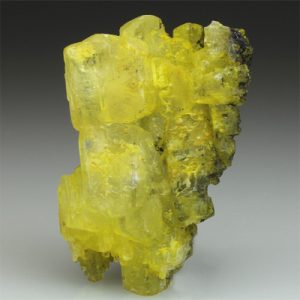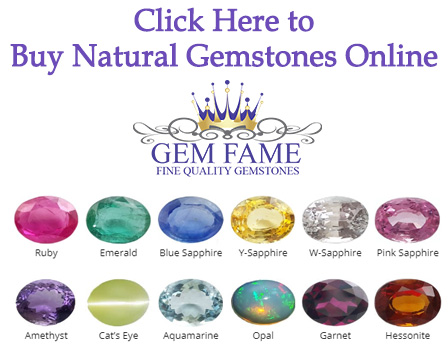Charlesite
Charlesite is an extremely rare gem and a member of the Ettingite Group of minerals that includes Charlesite, Ettringite, Sturmanite and Thaumasite. It is also a very interesting mineral in that it is about 47% H2O; almost half water! Faceted gems from the Wessels Mine in South Africa are an attractive, pale yellow, clean and usually small.
Charlesite was discovered in late 1945 by miners in the Franklin Mine in Franklin, Sussex County, New Jersey, and was brought to the attention of John L. Baum. This initial discovery was reported by Cornelius Hurlbut and John L. Baum in their report in 1960. They considered the new mineral to be a variety of Ettringite. It wasn’t until an investigation of the mineral Sturmanite in 1983 that the new mineral was recharacterized as the aluminum analogue of Sturmanite and declared to be a separate, new mineral and named it Charlesite after Dr. Charles Palache (1869–1954), eminent American crystallographer and mineralogist, for his studies of the minerals of Franklin, New Jersery.
The only current sources of Charlesite are the Franklin Mine, Franklin, Sussex County, New Jersey, USA and the Wessel’s Mine and N’Chwaning Mines, Kalahari manganese fields, Northern Cape Province, South Africa. The Wessel’s Mine may be the only source of gem quality crystals.
| Chemical Formula: | Ca6(Al,Si)2(SO4)2B(OH)4(OH,O)12 · 26(H2O) |
| Hydrated Calcium Aluminum Silicate Hydroborate Sulfate Hydroxide | |
| Molecular Weight: | 1,234.40 gm |
| Composition: | Calcium | 19.48 % | Ca | 27.26 % | CaO |
| Aluminum | 3.28 % | Al | 6.19 % | Al2O3 | |
| Silicon | 1.14 % | Si | 2.43 % | SiO2 | |
| Boron | 0.88 % | B | 2.82 % | B2O3 | |
| Hydrogen | 5.23 % | H | 46.70 % | H2O | |
| Sulfur | 5.20 % | S | 12.97 % | SO3 | |
| Oxygen | 64.81 % | O | |||
| 100.00 % | 98.38 % | = TOTAL OXIDE |
| Crystallography: | Trigonal – Ditrigonal Pyramidal |
| Crystal Habit: | Crystals are tabular {0001}, dominated by {1014}, to 6 mm, may be rounded. |
| Twinning: | None |
| Cleavage: | Perfect on {1010} |
| Fracture: | Conchoidal |
| Tenacity: | Brittle |
| Moh’s Hardness: | 2.5 |
| Density: | 1.77 (g/cm3) |
| Luminescence: | Pale violet to pale green fluorescence under SW UV, weaker pale green fluorescence under LW UV |
| Radioactivity: | Not Radioactive |
| Color: | Colorless, White, pale Yellow, pale Pink |
| Transparency: | Transparent, may appear opaque due to surficial alteration. |
| Luster: | Vitreous to Dull |
| Refractive Index: | 1.475 – 1.492 Uniaxial ( – ) |
| Birefringence: | 0.0170 |
| Dispersion: | n/a |
| Pleochroism: | None observed |


